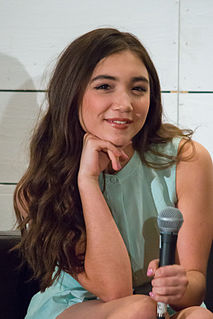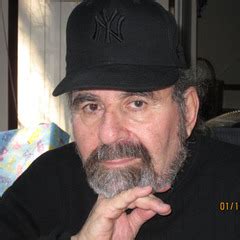A Quote by Diane Wakoski
From reading a previous answer, you know that I consider all those aspects to be part of American cultural myth and thus they figure into good American poetry, whether the poet is aware of what he is doing or not.
Related Quotes
I didn't ever consider poetry the province exclusively of English and American literature and I discovered a great amount in reading Polish poetry and other Eastern European poetry and reading Russian poetry and reading Latin American and Spanish poetry and I've always found models in those other poetries of poets who could help me on my path.
When we look at the arts and letters in America, especially if we look at poetry, and poetry set to music, this dialogue, we have this very powerful beautiful, eclectic, diary, or narration of being in America, being American, participating in America, becoming more of America and also as an American, the American creative spirit, which is quite interesting. Our composers and poets have spent more time writing and thinking and speaking out of what it means to be a composer or poet as well as to be an American, or a composer or poet In America; both relationships.
The reason I wouldn't dare to write a Western is simply because that seems to be so much a part of American culture. Maybe if I want to write a Western enough I should try to overcome that fear, but I'll certainly feel like I'm trespassing. I feel that that is so much a part of American foundation myth, it's part of the myth of America, the American vision of what America is, which people have glorified and then challenged and then vilified.
I would consider myself American in the way of what the actual idea that's in the Constitution is, not the way that it's performed: All men are created equal, freedom for all, that's something that I obviously believe in. I don't consider myself American because I'm not sure if those are the values that we actually prioritize as much as we need to, but I consider myself American if you look at the Constitution.
If you live for the highest goal, you are living a life of the spirit-whether or not you consider yourself to be on a spiritual path. If you consciously notice the larger aspects of life, always consider whether what you are doing coincides with these aspects, never forget the times when you were enlivened by the power of the highest goal, use those memories in new situations, and act with the knowledge of the support you have and the journey you are on-you will be living for the highest goal.
Lincoln is such an iconic figure in American history. He seems to reflect so many elements of American culture that we consider essential, whether it's the self-made man, the frontier hero, the politician who tries to act in a moral way as well as in a political way, Honest Abe. His career raises these questions that are still with us, the power of the federal government vis-à-vis the states, the question of race in American life, can we be a society of equals? There are so many issues central to Lincoln's career that are still part of our society one hundred and fifty years later.
I began writing for kids because I wanted to effect a change in American society. I continue in that spirit. By the time we reach adulthood, we are closed and set in our attitudes. The chances of a poet reaching us are very slim. But I can open a child's imagination, develop his appetite for poetry, and more importantly, show him that poetry is a natural part of everyday life. We all need someone to point out that the emperor is wearing no clothes. That's the poet's job.
What the world wants, what the world is waiting for, is not Modern Poetry or Classical Poetry or Neo-Classical Poetry - but Good Poetry. And the dreadful disreputable doubt, which stirs in my own skeptical mind, is doubt about whether it would really matter much what style a poet chose to write in, in any period, as long as he wrote Good poetry.






































